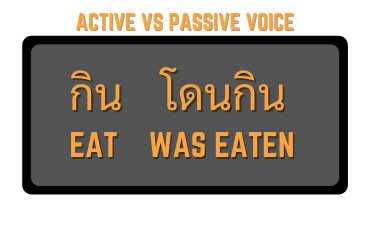ห้อง (hông) by itself means room. However, in Thai, ห้อง is the classifier for rooms, so it is used as a component in many different words. For many of them, if you know both components, you can guess the word. You’ll see many examples below! Words with ห้อง hông...
Blog
Don’t travel to Thailand without knowing these 10 verbs
Are you planning to visit Thailand? Here are 10 very useful and common Thai verbs related to traveling that you should know before coming. 1. To go = ไป bpai How are you going to Chiang Mai?คุณจะไปเชียงใหม่ยังไงkun jà bpai chiang-mài yang...
How to say to fix in Thai? Difference between ซ่อม and แก้ไข
If you look for the word "Fix" in a Thai dictionary, you will come across 2 words ซ่อม (sôm) and แก้ไข (gâe kăi). Do you know the difference between these words? in this article, I will explain the difference and when to use each. Quick Summary: ซ่อม (sôm) is used...
How to say to be nosy in Thai (ยุ่ง, เสือก, เผือก)
There are many different ways to say to be nosy in Thai and many expressions to say please don't be nosy, don't mess with me, etc. Let's take a look together. The following words and expressions are listed from most polite to least polite. อยากรู้อยากเห็นเรื่องคนอื่น...
Animal sounds in Thai (Onomatopoeia)
Here, I list the 17 most common onomatopoeia for animal sounds in Thai. You will notice that in Thai, animals make different sounds as compared to English. For example, in English, dogs say "woof" but in Thai they say "bók". Or ducks say "quack" in English but "gáap"...
Private Parts in Thai (How to say penis and vagina)
Talking about sexual organs / private parts in Thai is often a taboo topic. For the sake of education, I will teach you. Male Private Part Let's start off with the word penis. In Thai there are few ways to say it. จู๋ jŏo This is the most common way to say penis. Most...
Active voice & Passive voice in Thai
In this article, I will teach you about how to use active and passive voice in Thai. Active voice is when the subject acts upon its verb (ex: I eat the food). Passive voice means that a subject is a recipient of a verb's action (The food was eaten). Let's look at some...
7 tips to learn Thai for total beginners – From an advanced Thai language Student
In this article, I will give you 7 Tips to learn Thai for total beginners. I have studied Thai for 3 years now. I consider myself to be a fluent Thai speaker. I can have conversations with anyone, I can watch movies. Sometimes people even think I might be half Thai 😂....
Useful Thai Pattern | ไปด้วย…ไปด้วย (To do something simultaneously in Thai)
In this post, we will learn a very useful pattern in Thai ไปด้วย…ไปด้วย (bpai dûay · bpai dûay). This pattern is used when you want to say you are doing 2 things at the same time. For example, watching TV while eating food. I'll show you all...
What if…I see a stranger unzipped (Thai listening practice)
Practice your Thai listening skills with this conversation question “What if I see a stranger unzipped?”. Follow along by reading the transcript. https://www.youtube.com/embed/QdZhrFqsQQk Transcript: The question is if you are walking on the street and you see that a...
What if…you could live anywhere in this world (Thai listening practice)
Practice your Thai listening skills with this conversation question “What if you could live anywhere in the world?”. Follow along by reading the transcript. https://www.youtube.com/embed/rJFdeuJa6Kg Transcript: If you could live anywhere in this world, where would...
How to say you can’t wait for something in Thai
In this article, I will explain how to say "I can't wait for something" in Thai. In Thai, we use the word ไหว (wăi) to explain that something is do-able and is within the capacity to do it. In contrast, the word ไม่ไหว (mâi wăi) is used to explain the opposite of...












